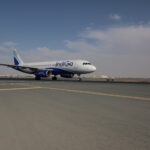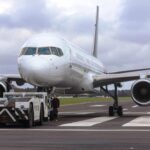Image: IATA
The International Air Transport Association (IATA) has urged Sri Lanka to develop an aviation blueprint so as to generate greater economic growth and prosperity through having a stronger aviation industry.
“Aviation connectivity can play a much bigger role in Sri Lanka’s economic development and social advancement. But this will not happen by chance. Government support will be critical to growing a strong airline sector and developing Colombo as an aviation hub. We urge the government and all industry stakeholders to collaborate on developing an aviation blueprint to strengthen the aviation industry’s competitiveness and bring greater prosperity to Sri Lanka. And IATA stands ready to support through our expertise and sharing of industry best practices,” said Philip Goh, IATA’s Regional Vice President for Asia Pacific.
Aviation has a role to play in 15 of the 17 UN Sustainable Development Goals. Trade and tourism rely on aviation, and this helps to create jobs, alleviate poverty and generate prosperity. In a 2018 IATA study, Sri Lanka’s aviation sector supported some 700,000 jobs and contributed $8 billion to the GDP. This has the potential to increase to over 1 million jobs contributing nearly $30 billion to the GDP by 2038.
In his keynote remarks at Aviation Day Sri Lanka, organized by IATA and the Civil Aviation Authority of Sri Lanka (CAASL), Goh suggested three areas to consider in the aviation blueprint: facilitating sustainable growth, safety, and sustainability.
Facilitating Sustainable Growth: “Sri Lanka’s aviation blueprint needs to facilitate the sustainable growth of the industry and having an updated airport masterplan is the first step. I urge the government to engage in a consultative approach involving airlines to ensure that industry input is factored in,” said Goh,
Goh urged Sri Lanka to digitise processes for passenger and cargo facilitation. “Many of the country’s passenger and cargo processes continue to be paper based. As traffic grows, digitisation will be key to address capacity constraints, increase efficiency and improve the travel experience. IATA’s One ID and One Record initiatives can help support this,” said Goh.
Jet fuel
Goh also highlighted the need to keep costs low, in particular jet fuel. Airlines pay more for jet fuel in Sri Lanka than at other major airports in Asia. He recognized much has been done in recent months to lower the cost of jet fuel and encouraged the government to review and consider placing limits or capping the amount that CEYPETCO can mark up for supplying fuel at the airport.
Safety: “It is important for Sri Lanka’s aviation sector to grow sustainably in a safe manner, and IATA is doing our part to support the country’s efforts. Utilising the International Airlines Training Fund, IATA will support the aviation industry in Sri Lanka by conducting safety related training in August for CAASL and Sri Lankan Airlines,” said Goh.

